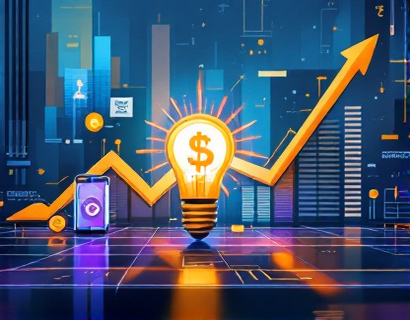Universal Capitalism: A Strategic Guide to Implementing a Sustainable and Equitable Global Economic Model
In an era where economic disparities and environmental degradation pose significant threats to global stability, the need for a transformative economic model has never been more urgent. Universal Capitalism emerges as a comprehensive and forward-thinking approach, designed to drive sustainable growth and ensure equitable wealth distribution. This guide is tailored for economists, business leaders, policymakers, academics, and sustainability advocates, offering innovative frameworks and strategies to implement a more inclusive and prosperous economic model worldwide.
The concept of Universal Capitalism is rooted in the belief that capitalism, when reimagined and restructured, can serve as a powerful tool for achieving both economic prosperity and social equity. Unlike traditional capitalism, which often prioritizes profit over people and planet, Universal Capitalism integrates sustainability and inclusivity into its core principles. This approach seeks to harness the efficiency and innovation of market mechanisms while addressing the systemic issues that lead to inequality and environmental degradation.
Understanding the Principles of Universal Capitalism
At its core, Universal Capitalism is built on several key principles that differentiate it from conventional economic models. First, it emphasizes the importance of sustainable development, recognizing that economic growth must be aligned with environmental stewardship. This means adopting practices that minimize ecological footprints and promote the conservation of natural resources.
Second, Universal Capitalism advocates for equitable wealth distribution. It seeks to create economic systems where the benefits of growth are shared more broadly, reducing poverty and narrowing the gap between the rich and the poor. This is achieved through policies that support fair wages, social safety nets, and access to education and healthcare.
Third, this model promotes inclusive participation. It ensures that all segments of society, including marginalized and underrepresented groups, have the opportunity to contribute to and benefit from economic activities. This inclusivity fosters social cohesion and stability, which are essential for long-term economic success.
The Need for a New Economic Paradigm
The current global economic system faces numerous challenges that underscore the necessity for a new paradigm. Traditional capitalism has been criticized for its role in exacerbating income inequality, environmental degradation, and financial instability. The 2008 financial crisis, for instance, highlighted the vulnerabilities of a system that prioritizes short-term gains over long-term sustainability.
Moreover, the rise of automation and artificial intelligence is transforming the job market, potentially displacing millions of workers. This technological shift requires a rethinking of how economies function, to ensure that the benefits of innovation are widely distributed and that workers are supported in transitioning to new roles.
Climate change poses another critical challenge, with its far-reaching impacts on economies, communities, and ecosystems. A sustainable economic model must integrate climate resilience and mitigation strategies, ensuring that growth does not come at the expense of the planet.
Key Components of Universal Capitalism
To effectively implement Universal Capitalism, several key components must be integrated into economic policies and practices. These components work synergistically to create a robust and resilient economic system.
Sustainable Business Practices
Businesses are the engines of economic growth, and their role in promoting sustainability is crucial. Universal Capitalism encourages companies to adopt sustainable practices that reduce environmental impact and promote social responsibility. This includes investing in renewable energy, reducing waste, and ensuring ethical supply chains.
Companies can also drive innovation by developing products and services that address global challenges, such as clean technology and sustainable agriculture. By aligning business goals with sustainability objectives, companies can contribute to a healthier planet while maintaining profitability.
Inclusive Economic Policies
Governments play a vital role in shaping economic policies that promote inclusivity and equity. Universal Capitalism advocates for policies that support fair labor practices, progressive taxation, and social welfare programs. These policies help redistribute wealth and provide a safety net for the most vulnerable populations.
Education and skill development are also critical. Investing in education ensures that individuals have the tools needed to participate in the modern economy. Lifelong learning programs can help workers adapt to changing job markets, reducing the risk of unemployment due to technological advancements.
Financial Inclusion
Financial inclusion is a cornerstone of Universal Capitalism. Access to financial services, including banking, credit, and insurance, is essential for empowering individuals and communities. By expanding access to financial tools, people can better manage their finances, invest in their future, and contribute to economic growth.
Technology plays a significant role in financial inclusion, with digital banking and mobile finance solutions reaching underserved populations. Policies that support the development of financial infrastructure and protect consumers are essential for building a more inclusive financial system.
Implementing Universal Capitalism: Strategies and Frameworks
Transitioning to a Universal Capitalism model requires a multifaceted approach, involving collaboration among various stakeholders. Here are some strategies and frameworks to guide this transformation.
Policy Reform
Policymakers must lead the charge by reforming existing laws and regulations to support sustainable and inclusive economic practices. This includes updating tax codes to discourage harmful activities and incentivize sustainable behaviors, as well as strengthening labor laws to protect workers' rights.
International cooperation is also crucial, as global challenges require global solutions. International agreements and frameworks can help align policies across borders, promoting a cohesive approach to sustainability and equity.
Corporate Transformation
Businesses must undergo a cultural and operational transformation to align with the principles of Universal Capitalism. This involves integrating sustainability into core business strategies, adopting transparent and ethical practices, and engaging stakeholders in decision-making processes.
Companies can also form partnerships with NGOs, academic institutions, and other businesses to share knowledge and resources, driving collective progress toward sustainability goals.
Community Engagement
Local communities are essential partners in the transition to Universal Capitalism. Engaging communities in the planning and implementation of economic initiatives ensures that their needs and perspectives are considered. This participatory approach fosters ownership and commitment to sustainable development.
Community-based projects, such as local renewable energy initiatives or cooperative enterprises, can serve as models for broader economic transformation. These projects not only address immediate needs but also build capacity and resilience within communities.
Case Studies and Success Stories
Exploring real-world examples of Universal Capitalism in action can provide valuable insights and inspiration. Several countries and regions have begun to implement elements of this economic model with promising results.
In Denmark, the concept of the "flexicurity" model combines labor market flexibility with strong social security systems, resulting in low unemployment rates and high social cohesion. This approach balances the needs of businesses and workers, fostering a dynamic and inclusive economy.
In Costa Rica, a strong commitment to environmental sustainability has led to significant advancements in renewable energy and conservation. The country's economic model integrates ecological preservation with economic growth, serving as a model for sustainable development.
These case studies demonstrate that Universal Capitalism is not just a theoretical framework but a practical approach that can be adapted and implemented in diverse contexts.
Challenges and Solutions
While the potential benefits of Universal Capitalism are clear, the transition to this model is not without challenges. Resistance from vested interests, lack of political will, and economic inertia are among the obstacles that must be overcome.
To address these challenges, a comprehensive communication strategy is essential. Educating the public and stakeholders about the long-term benefits of Universal Capitalism can build support and momentum for change. Transparent and inclusive decision-making processes can help align the interests of various groups and reduce opposition.
Economic incentives and support mechanisms can also facilitate the transition. Governments and international organizations can provide funding and technical assistance to help businesses and communities adopt sustainable practices. Gradual reforms can minimize disruption and allow for a smoother transition.
Conclusion
The implementation of Universal Capitalism represents a transformative opportunity to create a more sustainable and equitable global economic model. By integrating sustainability, inclusivity, and innovation, this approach offers a pathway to a prosperous and resilient future for all.
Economists, business leaders, policymakers, and sustainability advocates have a critical role to play in this transformation. By embracing the principles of Universal Capitalism and working collaboratively, we can build an economic system that serves the needs of both people and the planet.










































